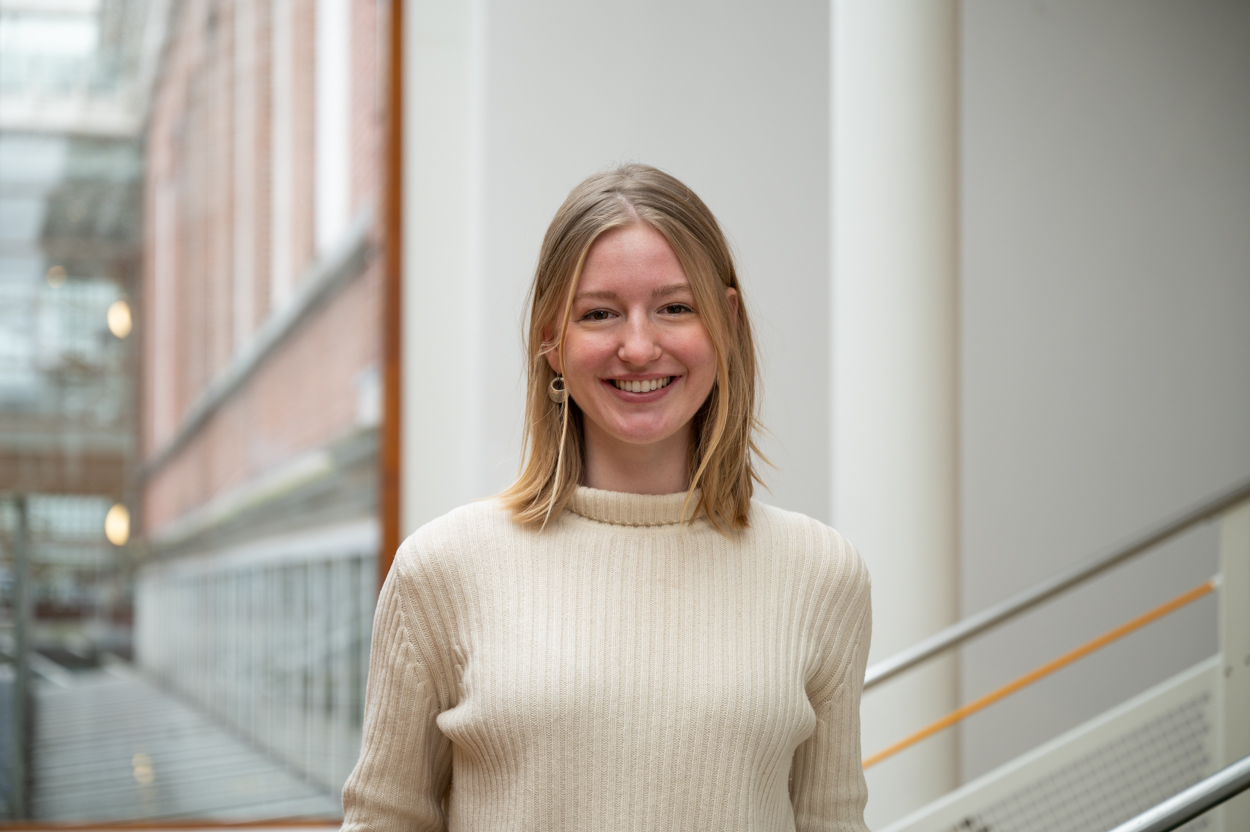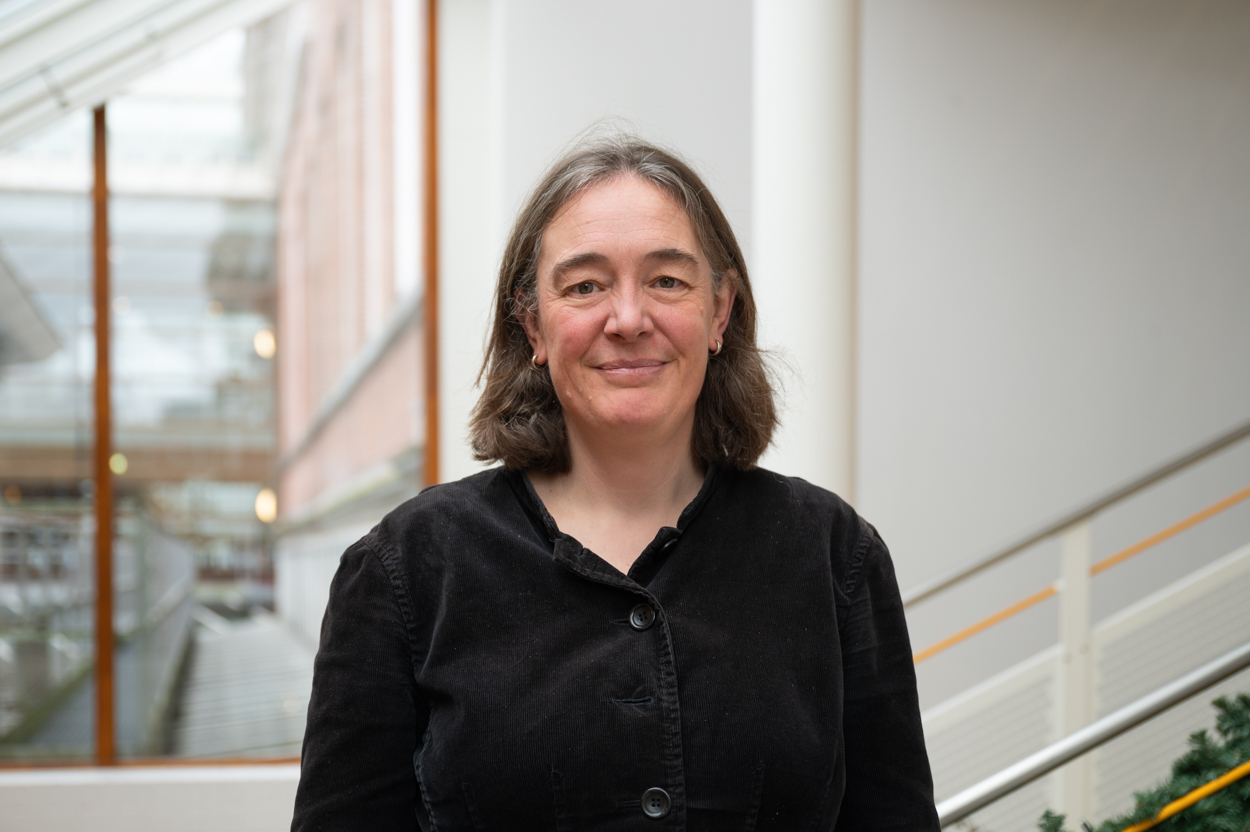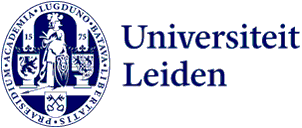
An AI system that tells you why you should eat glass – should that be allowed?
The English-language interdisciplinary minor ‘AI and Society’ explores the role of artificial intelligence in our society. The interdisciplinary nature of the minor is proving beneficiary for students and lecturers alike. We sit in during a class.
From exclamations of praise to doomsday predictions: the rise of artificial intelligence (AI) is eliciting a great variety of responses from society. In the meantime, AI is already omnipresent in society, by virtue of being used by many of our modern devices, apps, and computer systems. What does AI mean for our society, now and in future? This broad question plays a central role in the interdisciplinairy minor ‘AI and Society’. In a series of six courses, a select group of students (from specialisations within Leiden University, but also from Delft University of Technology, and Erasmus University Rotterdam) are introduced to different perspectives and questions by lecturers from at least as many different disciplines.

Ready for more
In today’s lecture, as part of the ‘Governance of AI’ course, the focus lies on the legal perspective. For example, what legal rules should an AI system comply with? Last time, Professor Anne Meuwese talked to the students about the foundations of an EU law that is currently in the making. This law is intended among other things to define the requirements that AI systems must meet in the EU. The students were assigned a lot of reading for today’s lecture. This has clearly not discouraged them: they come in looking alert and talking animatedly. They seem to be ready for more knowledge.
Ridicule
Anne kicks off with a practical example. Meta, the mother company of Facebook, recently launched a new AI system, Galactica. This language system can generate texts on demand, based on the scientific papers the system was trained with. The system was made publicly available, only to be taken down within a few days. With great conviction, Galactica was producing texts that contained ridiculous and even dangerous pronouncements. For example on the advantages of eating glass or why we should all profess to anti-Semitism.

Watermark
Anne throws some discussion questions into the group. Should such a system be allowed? Are the negative effects of Galactica covered by the draft EU law? Opinions vary. ‘This is a convincing contribution to fake news,’ someone says. ‘It can be a useful tool,’ another student counters. ‘The system’s products depend on the users. Maybe we can impose a minimum age for using the system, or include a watermark on each paper to make it clear that it was generated by AI.’ The conversation deepens when Anne adds another two elements. First of all: how will the EU enforce its AI legislation for AI system providers and users outside the EU? Various regions (such as the EU, the US, and China) are working on formulating standards that apply to all AI systems. But what if our assumptions concerning these standards vary across regions?

A real exchange
‘What makes this minor unique,’ Anne explains during the break, ‘is that it attracts students from various backgrounds who deliberately chose to take a course with students from other disciplines. You can see it in their work ethic, their curiosity, the remarks they make. This creates a real exchange. As a lecturer, I also learn a lot from this minor, because I’m less able to rely on my own knowledge and experience. When I teach a course, I have to factor in the fact that I’m a legal expert, which means that I might make too many assumptions about the students’ legal knowledge, but also that my legal expertise is the ‘lens’ through which I look at the topic.’ This aspect is also apparent in how this course is tested within the minor, with students being asked to write a number of essays. ‘When reading the assignments, I try to not test them too much on legal knowledge, but to look at skills that are very important in the legal field. The students’ knowledge and understanding: that’s what it’s all about.’ As a researcher, too, she finds the combination of disciplines in this course fruitful. ‘It helps me come out of the “tunnel” of my own discipline. In this minor, I use a lot of assignments about case studies that come up in my own research, for example on the role of AI in immigration policy. By talking about it with the students, I always discover new aspects that I had not yet integrated in my own research.'
Understanding more about the major challenges of these times will make you stronger in your future career
Make you stronger
As far as she is concerned, this minor is interesting for all students. ‘Even if you don’t have a particular interest in AI: understanding more about the major challenges of these times will make you stronger in your future career, no matter what you do next. Especially at Bachelor’s level, this is an important aspect of academic development, irrespective of your discipline. I think that many students are under the impression that this kind of minor is a specialisation programme. But nothing could be less true, in my opinion.’

Comparison with the Cold War
After the break, the global perspective on AI legislation expands further, among other things through the work of political scientist Daniël Mügge. He shows for example that when it comes to AI development, there are massive differences between the US, the EU, and China. First of all, in terms of investment (the EU is a mouse compared to the other regions). Secondly, in terms of assumptions underlying legislation. And these differences, he argues, also affect the development and application of AI, which comes at a huge economic price. Because what if one region does allow the use of a revolutionary AI system, and another does not? The students discuss among other things comparisons with the Cold War period – Aren’t we facing a similar kind of arms race when it comes to AI? – and the old discussion about nuclear energy – AI can be dangerous, but it can also bring great benefits.
Anne concludes with a provocative perspective. ‘You can say whatever you like about the legislation that the EU is in the process of formulating, but they are clearly ahead of the other regions in this respect. This makes them an interesting partner for others who wish to formulate similar legislation.’ Attend the AI minor for a mere two hours, and your head will be spinning from all the different perspectives.
See here for a more detailed description of the minor.
Text: Jan Joost Aten
Photographs: Eelkje Colmjon

What do the students think of the minor?
Terra Rolfe, Bachelor’s student in Liberal Arts and Sciences (specialisation in Governance Economics and Development):
‘I’m now able to bring in new perspectives and concepts about AI’
‘I’ve loved the minor so far because of the mix of different disciplines of students in the classroom, and because of the different perspectives taught by people from computer science, psychology, philosophy, governance and law. That’s super interesting. I also think the minor’s a nice supplementary programme to my major, in terms of taking what I’ve learned from governance and economics and applying that to AI, one of the most pressing public governance challenges today.
The mix of students is visible in the discussions in the classroom, today is no exception. There’s a student of cultural anthropology who brings in a more social perspective of things, and then someone else starts talking about law and how AI might apply to that, and then we have programmers who can get more technical about things. I think that really enhances the quality of discussions and the ability to see the way AI effects all of different areas of society. So I would certainly recommend this course to other students. It gives a really good overview of the different ways in which AI impacts society and, in turn, the ways governments and society can impact AI. I also really liked the fact that it started out with a technical foundation before getting into the more governance/legal side of things. I think it’s a unique way of exposing different types of students to a more technical point of view. The minor’s certainly not too technical, and this is a field that I’m not super comfortable in. Actually, in informal talks with computer science students, I’m now able to bring in perspectives and concepts about AI that they hadn’t really thought of yet. So that was definitely an enrichment.’

What do students think of the minor?
Tofigh Hasen Nezhad Nisi (student of Law and Tax Law):
'This course really gives me the feeling that I’m actively involved in the scientific debate around AI’
‘I chose this minor because I wanted to know more about what AI is doing in practice, in society. Digital technologies are the future, and they will help us in variety of ways. Not just with everyday tasks but also on a global governance scale. Countries, and the relationships between them, are going to be affected in a significant way by digital technologies. I want to apply the knowledge from this minor in my own discipline. I see that in my field, law, there definitely are some people looking at how digital technology will affect law, but currently I don’t see a lot of direct effects from rule application on AI or a bridging of the gap between technology and law.
The minor’s turning out great. The first class brushed away all my misconceptions about AI. It gave me a clear view of what AI is and what it can realistically achieve. One of my misconceptions was that AI was a very fast moving train and potential threat to society. Now, I think of it with some more nuance. The discussion’s not about robots taking over the world, but about how daily used AI-systems can affect society in a positive or negative way. AI can help us make decisions, mostly. I think the discussion should focus on that.
The other thing I really like about this minor is that there’s a lot of room for debate. It’s not just reading a book and reproducing its contents. This is a course that really gives me the feeling that I’m scientifically active, reading papers, looking at where the scientific debate is right now, in which direction it might be heading, and most importantly combine these views to shape my own.’

‘We saw an opportunity to create education for the next generation,’ says Francien Dechesne, Coordinator of the AI and Society minor.
Why this minor?
‘All faculties within Leiden University are in some way engaged with AI, in their research or their teaching. This is true from computer science to law, and from linguistics to public administration. The launching of the SAILS-network has made it even easier for these researchers to find each other. These broad activities are a great opportunity to create education for the next generation. In today’s lecture, you also saw us talking about draft legislation and debates that are currently taking place at European level. This is the kind of knowledge and awareness that we need to equip our students with, because these developments will greatly impact society. This is why we deliberately chose ‘AI and Society’ as a title, to allow us to integrate all kinds of knowledge that is available at the University into our minor. In addition, this minor is intended to be an interdisciplinary discussion. We are deliberately not saying: this is how you should debate or do interdisciplinary work. Because the researchers themselves are not yet sure how to do it. This minor is therefore a great blueprint for trying things out; and we cannot do it without students from diverse disciplines.’
What would you still like to change about the minor?
‘It was our explicit intention with this minor to show students what AI technology does and does not do. This perspective is also interesting for computer science students, to allow them to take a step back and see the precise effects of this technology. And I think that computer science students can also greatly benefit from interacting with other disciplines. So I would certainly like to invite these students to take part in the minor. We are also working on developing the minor further in this respect, with more room for understanding the computational technologies that underly the current applications, and hopefully in the coming year a new foundational course that focuses more on the philosophy, ethics, and politics of AI. This still requires some work with colleagues from different faculties, but based on this year’s experiences, we are all enthusiastic about extending the programme further.’
See here for a more detailed description of the minor.
